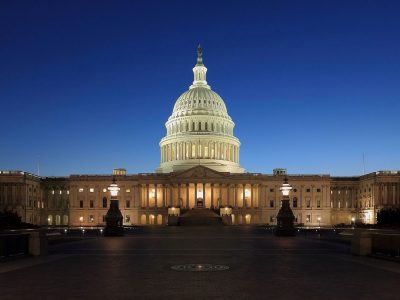Legislation
Making Polluters Pay for Climate Consequences
A pair of new bills introduced in the California State Legislature would create a climate superfund. Here’s how it would work.
The dramatic increase in extreme weather events has been wreaking havoc on states across the country, from devastating fires, floods, and droughts to rising sea levels. As a member of the Board for the American Red Cross Pacific Coast Region, I have seen firsthand how the organization is responding to twice as many climate-related disasters …
Continue reading “Making Polluters Pay for Climate Consequences”
CONTINUE READINGHow to Grow a Victory Garden out of Trash
Private recycling subscription services are helping my family divert our waste, though I wish we didn’t need them.
While unelected billionaires and sycophant cabinet members are pretending to get rid of waste in Washington, I’ve declared war on waste, fraud, and abuse in my own Los Angeles home. My family is fighting food and plastic waste using a pair of recycling subscription services. Yes, I realize it’s just a small ripple in the …
Continue reading “How to Grow a Victory Garden out of Trash”
CONTINUE READINGNew State Bill Targets Pollution from Aggregate Facilities
Guest contributors Mayahuel Hernandez and Ian Bertrando explain the air-quality benefits of SB 526, a bill they worked on with California State Sen. Caroline Menjivar.
The California Senate just took a critical step toward confronting unhealthy air quality in environmental justice communities through the introduction of a new Senate Bill 526. This proposed legislation aims to curb dangerous dust emissions from aggregate facilities in the South Coast Air Basin, where industrial pollution has long threatened public health and the environment. …
Continue reading “New State Bill Targets Pollution from Aggregate Facilities”
CONTINUE READINGWhy I Still ♥ IRA
Biden’s climate law has already had a dramatic impact.
With over a half-trillion dollars in clean tech investment to date, the Inflation Reduction Act has left an indelible mark on U.S. climate policy. It’s unlikely that Congress will vote to repeal the whole law, given massive investments in GOP congressional districts. But even if they did, there’s no undoing the investments already made.
CONTINUE READINGClimate Takeaways from Newsom’s Budget Proposal
The Governor’s proposed 2025-26 budget would tap the recent voter-approved climate bond and seek new emergency funds.
For more than a month, California has worked at “Trump-proofing” the State budget. Now you could say the Governor is looking to fire-proof it too. On Friday, as wildfires continued to rage across Southern California, officials from the California Department of Finance presented the Governor’s proposed 2025-26 budget. Earlier in the week, the Governor—who has …
Continue reading “Climate Takeaways from Newsom’s Budget Proposal”
CONTINUE READINGGovernment by Reconciliation
The reconciliation process avoids the risk of a Senate filibuster. But it comes wth procedural and political complications.
The GOP’s efforts to accomplish a big agenda through the reconciliation process will face serious complications. The Byrd rule limits the use of reconciliation to achieve non-budgetary purposes. A razor-thin House majority and factional warfare will make it hard to reach deals, as will Trump’s (& Musk;s) distaste for compromise.
CONTINUE READINGGood & Bad Environmental News From the U.S. Supreme Court
Escalating Legal Attacks on California’s Longstanding Clean Air Act “Waiver” Authority
This past week, the U.S. Supreme Court issued important orders in two closely-related environmental cases previously decided by the U.S. Court of Appeals for the District of Columbia. Last Friday the justices granted review in Diamond Alternative Energy v. Environmental Protection Agency, agreeing to decide whether fossil fuel manufacturers have legal standing to challenge an …
Continue reading “Good & Bad Environmental News From the U.S. Supreme Court”
CONTINUE READINGTrump & Environmental Policy: The Sequel, Part II
Expect a lot of the same, but there could be some new twists.
Trump’s basic thrust is to eliminate environmental protection, just as he tried to do in his first term. But there are some new factors — new faces like Kennedy and Musk, and new developments like the massive investments sparked by Biden’s Inflation Reduction Act. Both Trump and the resistance will be better organized. In one way, you could think of this as a fascinating social experiment — but one with potentially devastating consequences for public health, climate change, and the future of the planet.
CONTINUE READINGCalifornia Can Protect Climate Policies—and Pocketbooks
Lawmakers can use climate policies to alleviate some cost burdens. They should also resist the narrative that climate progress is driving affordability concerns.
Affordability is the name of the game at the California Legislature this session, with leaders in both the Assembly and the Senate talking explicitly about cost of living. But legislators’ focus on bringing costs down for average Californians doesn’t need to come at the expense of forward-thinking climate policy. Here are a few things legislators …
Continue reading “California Can Protect Climate Policies—and Pocketbooks”
CONTINUE READINGYes, Virginia, There ARE Federal Climate Laws.
Contrary to myth, Congress has actually passed laws relating directly to climate change.
It’s a common misconception that Congress has never passed any climate change legislation. But Congresshas passed at least laws regulating two powerful greenhouse gases, as well as a series of other laws stretching back almost forty years. The story begins under President Nixon and extends into the Biden years with the multi-billion dollar Inflation Reduction Act.
CONTINUE READING











